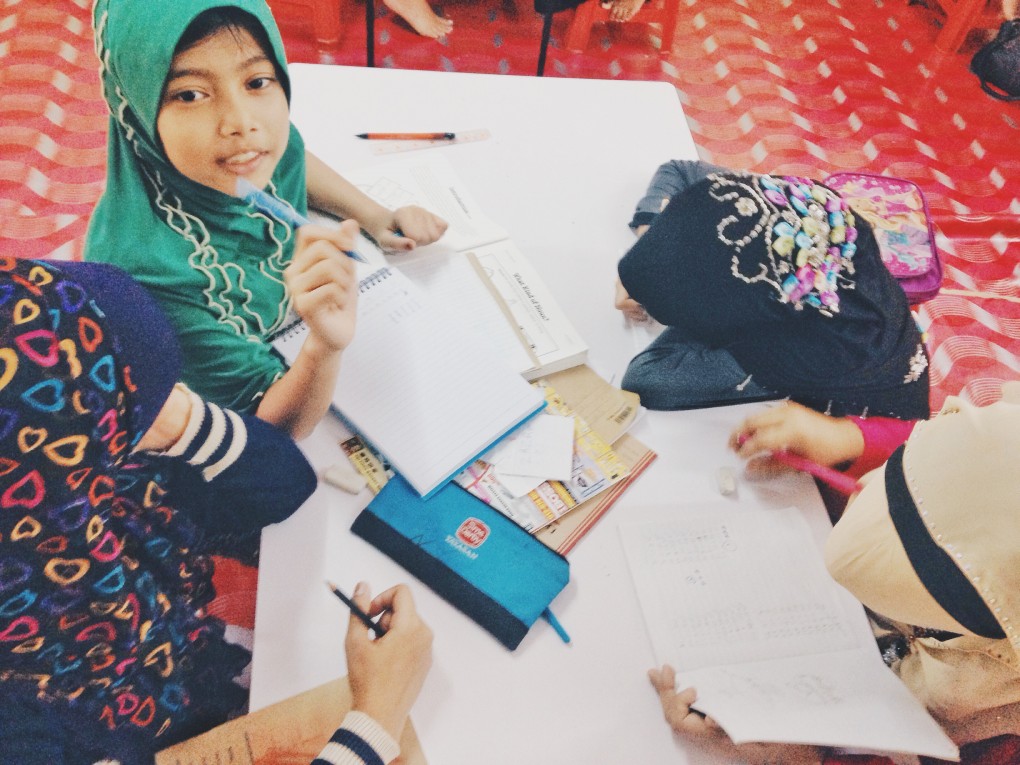By Nur Najmi Jamal
Do you know that “refugees” are different from “economic migrants”? Refugees are people who have been forced to leave their homeland due to war or conflict of political, religious or military nature where such a situation that exists may no longer be safe for them to continue with their daily living. They fear for their safety and their lives are threatened by persecution.
An important feature that differentiates refugees from economic migrants is that the latter are opportunists migrating to other countries to better themselves economically where their home country may not be in serious trouble politically, socially or economically.
Refugees, however, have lost the choice to return home safely. Moreover, the need for them to struggle to survive in facing the economic and social reality. In addition, they need to blend themselves very well with the local society in a new place called ‘home’ since they are a minority group.
Let’s take a minute and be in their shoes. Imagine ourselves in their position having to endure the hardship physically and mentally where they were forced to leave their homes to risk their lives to seek refuge in another foreign country. To be put in a place that they were not even familiar with, and having to start their life again from zero.
In Malaysia, there are over 20,000 children of refugees aged below 18. Like all ordinary children living on this earth, these refugee kids have the right to have proper children lifestyle: education, playing time, personal development, protection and safety.
Sadly, they fear security, often restricted from the normal outdoor childhood activities, no more playing time, no more accessibility to formal education, no more proper meals. Helping with the family seems the only option for those kids to ease the burden of the family.
Education for refugee children is recognised as a universal human right. More than 1,000 refugee children are in the schooling age. However, approximately 40% of these kids do not attend school or have a proper formal education.
Thus, through the initiatives taken by the United Nations High Commission for Refugees and other non-governmental organisations (NGOs), community-based education classes have been organised by the refugee community themselves with the help of many non-refugee social teams to help the kids with education.
These communities and organisations are helping the refugees by renting shop lots or flats and converting them into classrooms for the children to seek knowledge. These classrooms are largely crowded by the children of different ages with limited resources such as teachers.
Hence, there are many social communities that are urging university students to join their organisations as volunteers to help with the kids’ programme. One of the social communities that is helping with the refugees is ‘Lend A Hand’ (LAN) which is involved in tutoring refugee kids in several places around Kuala Lumpur that include Kota Damansara, Batu Cave and Ampang.
These volunteer works are held on weekends, once in a week for two hours per session. The tutoring hours are open for all volunteers, regardless of age and qualifications as long as they can teach basic mathematics and English.
Indeed, university students are highly sought to join the communities and support the kids learning programmes. As volunteers, their tasks are to give the refugee kids homework, book revision in English, mathematics, art or games. They may also bring their own education stuff that they feel could be useful to teach them.
Those who are interested to join can easily go to the official Facebook, ‘Lend A Hand’, and register.
The objective of this tutoring is not solely to provide education but also to improve the soft skill of the kids; communication, tolerance with others, manners and ethics.
In other respects, the tutoring is to help them recover from sadness and trauma that happened to them at a young age. Over and above all these, the tutoring is to make them feel accepted in the society after being thrown out from their homeland.
As expressed by the head of ‘Lend A Hand’ (LAN), Mark Buyoud: œWe want to provide them the knowledge and education but the most important thing is the love that they have been missing and to recover from the suffering after being oppressed by their own country.
There are many positive feedback on these kinds of activities coming from the community, the kids parents and even from the refugee kids themselves. Some of the gestures and comments from the kids were in the form of a big thank you to their tutors and an expression of happiness on the opportunities to learn new things.
A tutor said, œI connect so quickly with the kids, they were so attentive to everything I said. Not surprising a group of young boys, aged about 10, asking me if the tutors could come everyday to play with them.”
It is important for this momentum to be sustained, so hereby I urge all students reading this article to become part of this volunteer community, to help improve the lives of refugee kids, to put back their smiles, to make them feel that we care, and to give them hopes for the future.***
